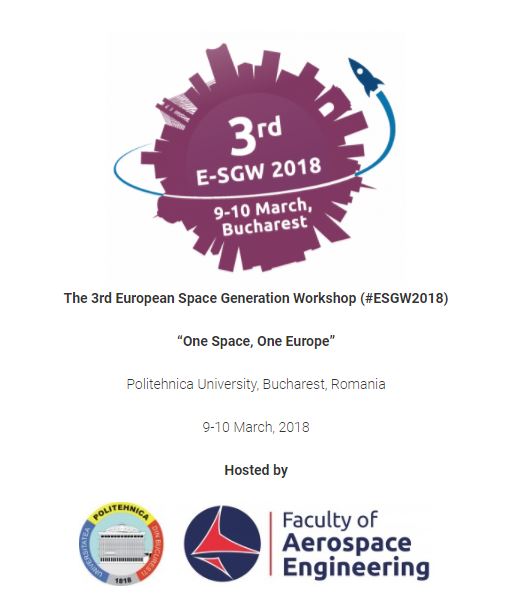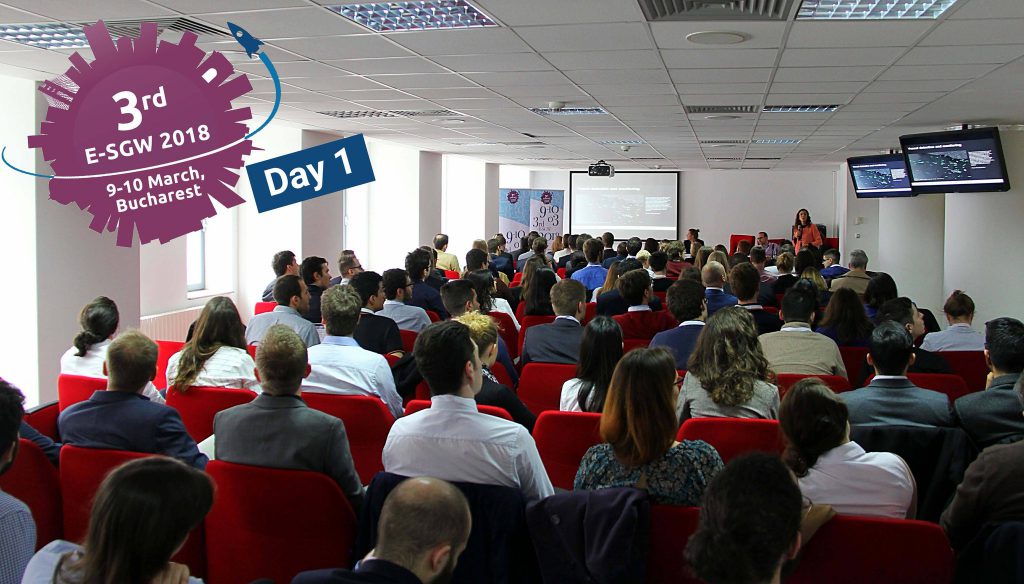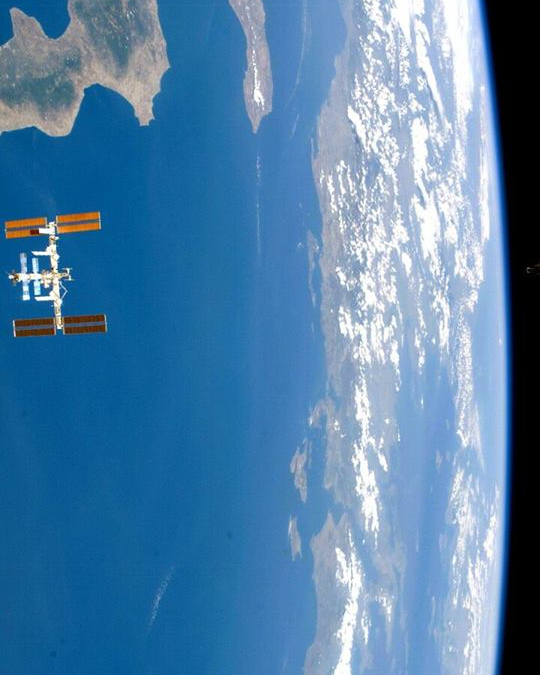Following Budapest and Paris, the 3rd edition of the European Space Generation Workshop, gathering young professionals and students working in the space sector, is set to take place in Bucharest, Romania on the 9th and 10th March 2018.
The two-day regional event will bring together Bachelor’s, Master’s and Doctoral degree candidates, young professionals, experts, academia, space agencies and industry representatives to network, exchange know-how, share best practices and nurture the next generation’s perspective on space matters.
Gathering around 100 delegates (18-35 years old) from all around Europe, their exchanges will focus on relevant and upcoming space sector challenges and opportunities, targeted to support future European and global policy initiatives, encourage youth contribution to space and enhance cross-country cooperation. From space entrepreneurship to space exploration, emerging new actors, sustainability, and applications, together we’ll examine critical questions facing the space and international community at large through a series of workshops, panels and guest presenters.
The event is organized by the University Politehnica of Bucharest, Faculty of Aerospace Engineering under the framework of the 200 Years anniversary of our school, together with the Romanian Space Agency (ROSA).
More details for registration on the event site <here>.


Fulbright Student Award
The program Fulbright Student Award has opened for the UY 2019-2020. The program targets Romanian students and doctoral students who are interested to study master programs or doctoral research (non-degree) in the United States. <Info Sheeti> Corina...
Air Navigation Convention 2018
Air Navigation Convention 15th -16th of March 2018 Reaching its 9th edition, the Air Navigation Convention is an important event organized by students of the Air Navigation Department of the Faculty of Aerospace Engineering. Everything starts from the desire to...
E-SGAC Bucharest 2018
Photo: www.esa.int Prof. Dr. Kai-Uwe Schrogl, Chief Strategy Officer at the European Space Agency (ESA) addressed the young community of the space generation at the 3-rd European Space Generation Workshop (SGAC), which took place in Bucharest, on 9-10 March...
Private Pilot Licence SSAvC Scholarships
Courtesy of Eng. George Barbu, CEO of the Aviation Academy and Alumnus of the Faculty of Aerospace Engineering, we announce this opportunity: On the occasion of the Great Union Centenary, as a sign of gratitude for the values that the Faculty of Aerospace...
Faculty Story
The story of the Faculty of Aerospace Engineering is mainly the story of its students. Daniela Andrioaie is a 3rd Year student of the Faculty of Aerospace Engineering, Aeronautical Constructions program of studies. She came to this faculty from a pretty long distance,...
Openings at Alten
The French company Alten located in Toulouse advertizes the following openings which match the profile of our graduates: - System Design - Electrical installation - Project management Contact data of Mr. Vincent Castanet, business...
Correct Rules Enforcing Re Evaluations and Resits
Note as of 14 May 2019: FAE-1 and FAE-2 rules have been repealed by Faculty Council Decision of 14 May 2019. Thus, all references to these rules below shall be ignored. The remaining recommendation will be maintained. Faculty Executive Board of FAE in the 24 January...
Job Opening at Bretigny
By courtesy of our Alumnus, Eng. Răzvan Mărgăuan, we invite our students, master students and fresh graduates to consider this job opening at the EUROCONTROL Experimental Center (near Paris) in domain of ATM Simulation and Modelling (including BADA). <Job...
Invitație în Asociația Alumni Politehnica Aerospace Engineering
We invite all our graduates, engineering, bachelor, master, advanced and doctoral studies to register in our Alumni Politehnica Aerospace Engineering Association. The Faculty of Aerospace Engineering gave the Romanian and World aviation an prestigious gallery...
114 Years of Aviation
Today in 1903: Wilbur and Orville Wright made four brief flights at Kitty Hawk, North Carolina, with their first powered aircraft. This photo was taken as Orville piloted the Wright Flyer on its first flight of the day, which lasted 12 seconds and covered 36 m (120...


0 Comments